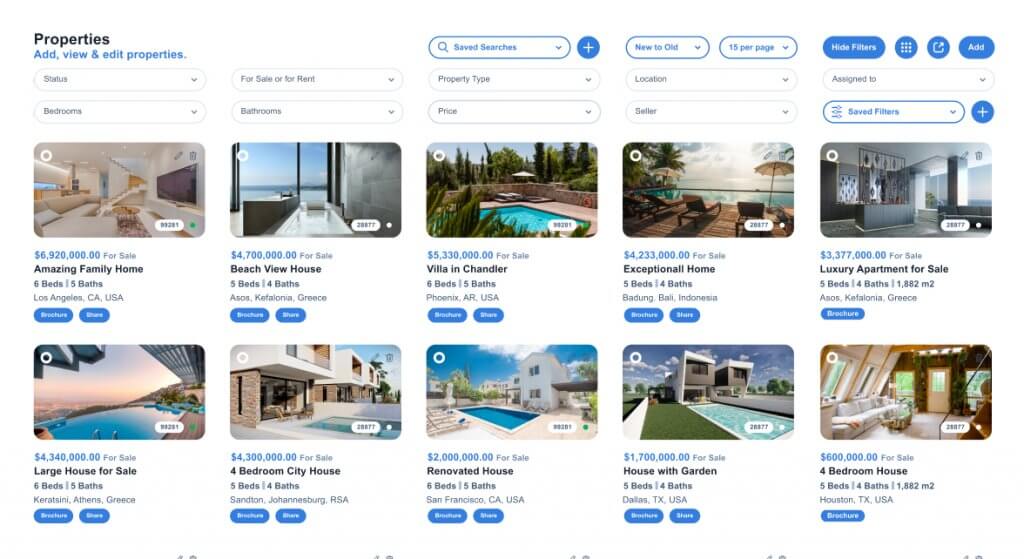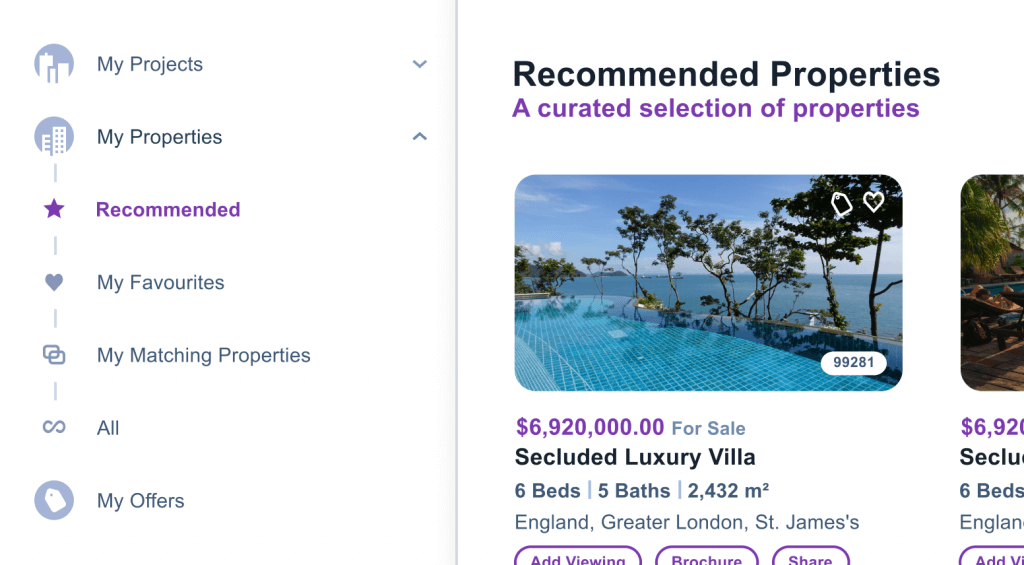In today’s business world, having a customer centric CRM is vital. Delivering excellent customer experiences is key to success and profitability. It involves making the customer the center of all business processes and decisions. According to Gartner, customer centricity requires an understanding of customer needs, wants and expectations, which drives customer satisfaction, loyalty, and advocacy.
In real estate, customer centricity is crucial for successful sales and marketing at every stage of the customer journey. A good CRM system can help companies better understand and improve their customer interactions, making them more customer-centric and competitive. In this blog, we’ll explore how a real estate CRM can help you achieve this.
Table of Contents
- Streamline Contact Management for Better Relationship Building
- Improve lead nurturing with CRM tools
- Optimize dashboards for improved reporting
- Quick marketing material creation with CRM
- Effortlessly share property info with clients
- Maximize online reach with CRM-website integration
1.Streamline Contact Management for Better Relationship Building
As a real estate professional, managing a large number of contacts is crucial to success. Having all your contacts stored in one central location enables you to better nurture relationships. A CRM system should simplify contact data management, making it easy to record or upload details such as names, phone numbers, and email addresses. The CRM should also link contact data to relevant leads and projects, and automatically detect and resolve duplicates to keep your contacts list clean and organized.
2. Improve Lead Nurturing with CRM Tools
For a customer-centric experience that leads to sales, you need a CRM that can categorize leads based on their stage in the buyer’s journey and manage interactions accordingly. A CRM should also provide a complete interaction history to identify areas for improvement in the customer experience. The following tools can support this process:
- Viewings: Schedule and track property viewings and generate reports to monitor sales performance.
- Offers: Record and track property offers and counteroffers, and identify properties with no offers.
- Tasks: Easily manage daily activities by creating tasks linked to records such as leads and properties, sorted by priority.
- Comments: Add information and track the history of any record as a real-time comment.
3. Optimize Dashboards for Improved Reporting
Efficient reporting requires easy access to business insights, which can be achieved with a CRM that allows for custom dashboards. The CRM should enable customization of data presentation, including pie charts, bar charts, line graphs, etc. Salespeople should also be able to create and manage their own dashboards to track their tasks and activities, improving efficiency. Customizing data views, lists, and reports helps real estate businesses manage the sales pipeline more effectively, and better understand customer behaviors for improved customer-centric strategies.
4. Quick Marketing Material Creation with CRM
To meet customers’ fast-paced expectations, choose a CRM that can quickly generate sales and marketing material. Look for a CRM with the ability to create branded brochures or leaflets at the click of a button, and send them directly to leads or customers via email. Opt for a system with ready-made templates that are easily modifiable, saving time and money compared to creating material from scratch. This level of automation enhances the customer experience by speeding up service delivery.
5. Effortlessly Share Property Info with Clients
A successful sale deserves a seamless follow-up experience. Choose a customer centric CRM that provides customers with a secure online portal where they can access all their property information anytime, anywhere. This can include agreements, contracts, progress photos, property images, floor plans, etc. Having this information readily available reduces the need for multiple email exchanges and enhances the after-sales support experience.
6. Maximize Online Reach with CRM-Website Integration
With most homeowners starting their property search online, having a robust real estate website is crucial. Integrating it with a customer centric CRM enhances your reach, capturing website leads and enabling quick follow-up. This integration must also allow for instant updates to property listings, providing real-time accurate information to customers. By streamlining communication and providing a seamless online experience, you increase your chances of making more sales.




